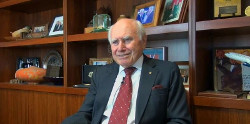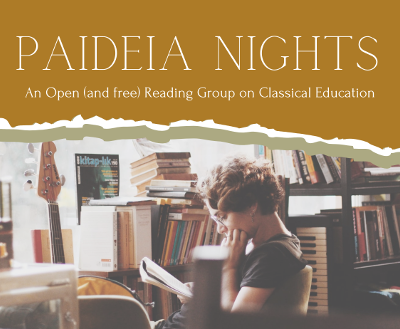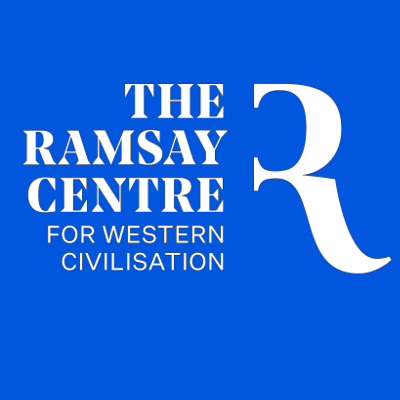In the first of his lectures delivered in 1805-1806 on the History of Philosophy (Vorlesungen über die Geschichte der Philosophie, not to be confused with his later lectures on the Philosophy of History), Hegel penetratingly remarked:
The name of Greece strikes home to the hearts of men of education… The Greeks have a starting-point in history as truly as they have arisen from out of themselves; this starting-point, comprehended in thought, is the oriental substantiality of the natural unity between the spiritual and the natural.
Hegel is alluding to the fact that among ancient cultures, it was the Greeks who truly emerged from the shadows of mythical superstition by taking those sobering and sometimes initial precipitous steps into the world of reasoned enquiry, uniting their spiritual disposition to a rational one. They richly endowed our human project with this ethos and became the wellspring of civilised learning. This well has not dried up. It remains for us moderns a source from which to drink, to draw inspiration and knowledge, and to teach our children.
Even from a Christian perspective, Athens stands with Jerusalem as the basis of a sound and whole human education. The early Church Fathers, for instance, in systematising theology, were deeply indebted to the foundations set by Plato and Neo-Platonism, as the Scholastics later were to Aristotle. Nor should we forget that Christianity profited greatly from the Greek translation of the Old Testament (the Septuagint) in writing and disseminating the New Testament documents in the common Hellenistic tongue.
Below, let us explore some key aspects of Greek antiquity (flowering over a 500-year period from c. 800 BC – 300 BC) that remain worthy of passing on to future generations. This summary will inevitably neglect detail of most of what classical Greece has to offer; nevertheless, I would like it to indicate some of the more notable elements a sound education should compromise.
We should begin this apologia by considering the Greek language, which, as no mere accident, became the lingua franca of the Mediterranean world for several hundred years. Many of the seminal texts in literature, history, philosophy and mathematics were composed in an ancient Greek dialect. The ease of writing and influence of their alphabetic system (especially on the Latin script), with its sophisticated grammar and syntax, and extensive vocabulary, all served to make it an ideal language for communication. Ancient Greece has also enriched the lexicons of numerous modern languages. With regards to classical education, therefore, it stands alongside Latin as a foundational study.
In many respects, the ancient Greeks pioneered the study of history and geography. Herodotus is the outstanding name in both respects. Although his style and content display the wit of the raconteur, verging more on the entertaining (i.e. colourful) aspect of historical narrative, this approach is neither absent of factual material nor unique to him, evidenced in other historians, ancient (Suetonius) and modern (Carlyle). Following Herodotus, the craft did develop a more critical eye and concern for accuracy: Thucydides and Polybius (and, later, Plutarch). Through their work, the Greeks not only collated significant geographical, cultural and historical knowledge to be preserved but also engaged in using the historian’s art to inculcate mores and values. They teach us that the human story (history) is not primarily a tool to dispassionately record the past but a vehicle for forming the present.
Perhaps in no other field than philosophy do the Greeks shine! Their impact has not simply (though primarily) been in thrusting Plato and Aristotle – those keen and encyclopaedic minds – onto the global stage, but in establishing, through rational thinking, a process of ordered learning, for instance, by precisely defining terms, Socratic questioning (elenchus) and dialectical argumentation. The thinking (and thinking about thinking) of figures like Anaximader, Heraclitus, Pythagoras, Parmenides, Anaxagoras, Leucippus, Democritus and Socrates provided a baseline for generations to follow. They were the first to reflect on genuine metaphysical problems such as the one and the many, the nature of being, the paradox of change and continuity, and the good life.
Still, Greece did provide the world with Plato and Aristotle, and this gift alone would be worthy of enduring praise. The past and continuing significance of these two geniuses cannot be understated; neither can the place of their corpora in the education of any person of learning. Aside for their contributions to various branches of philosophy, the sciences and theology, Plato focuses our minds on transcendental reality and the way it informs our material, changeable world of experience; Aristotle, on the other hand, helps us to recognise the immanent formal structure of our reality and how the senses deliver abstracted knowledge. These two philosophers combine the paradoxical halves of the human psyche and its desire to know the True, Good and Beautiful.

The work of such thinkers was not solely scientific, of course; it was artistic in nature. The great artistry and literature of the ancient Greeks gives breath to the human spirit, an glimmer of which emerges with that truly inventive artist, Homer:
Read Homer once, and you can read no more;
For all books else appear so mean, so poor,
Verse will seem prose: but still persist to read,
And Homer will be all the books you need.[1]
Literary renown of Homer’s magnitude can scarcely be reached but the Greeks tried! Hesiod, Sappho, Aeschylus, Euripides, Sophocles… a few names among so many and even Aesop, whose simple style, captured truth with profound penetration. It is not only the literary arts that witness to Greek mastery, as we are privileged to have remaining with us some of their sculptural and architectural craft: the Parthenon, the Laocoon or the friezes of the Pergamon Altar (like the panel below) to name a few. Others, such as the Statue of Zeus at Olympia, are lost to time but must surely have been awe-inspiring.

Beyond their artistic merits, we have inherited the spirit of Ancient Greek mathematical and scientific inquiry. Again, listing off the “Who’s Who” of these fields brings up all-to-familiar names: Pythagoras, Euclid, Archimedes, Ptolemy, Aristotle and Eudoxus of Cnidus. In fact, the sense of exploration, excellence and nobility of the human spirit (ἄριστος) is a prominent feature of the best periods of Ancient Greece, and is certainly a spirit that could with much benefit possess our age.
Perhaps no single work encapsulates this vitality and beautifully articulates it as the funeral oration of Pericles. When I taught in China many years ago, middle school students there were studying this speech as part of their English and Western culture classes. What a shame our Australian classrooms don’t! To quote Thucydides (at some length):
Our constitution does not copy the laws of neighbouring states; we are rather a pattern to others than imitators ourselves. Its administration favours the many instead of the few; this is why it is called a democracy. If we look to the laws, they afford equal justice to all in their private differences; if to social standing, advancement in public life falls to reputation for capacity, class considerations not being allowed to interfere with merit; nor again does poverty bar the way, if a man is able to serve the state, he is not hindered by the obscurity of his condition. The freedom which we enjoy in our government extends also to our ordinary life…
We cultivate refinement without extravagance and knowledge without effeminacy; wealth we employ more for use than for show, and place the real disgrace of poverty not in owning to the fact but in declining the struggle against it. Our public men have, besides politics, their private affairs to attend to, and our ordinary citizens, though occupied with the pursuits of industry, are still fair judges of public matters; for, unlike any other nation, regarding him who takes no part in these duties not as unambitious but as useless, we Athenians are able to judge at all events if we cannot originate, and instead of looking on discussion as a stumbling-block in the way of action, we think it an indispensable preliminary to any wise action at all…
In generosity we are equally singular, acquiring our friends by conferring not by receiving favours. Yet, of course, the doer of the favour is the firmer friend of the two, in order by continued kindness to keep the recipient in his debt; while the debtor feels less keenly from the very consciousness that the return he makes will be a payment, not a free gift. And it is only the Athenians who, fearless of consequences, confer their benefits not from calculations of expediency, but in the confidence of liberality.
Such an ideal speech, with its lofty tones and praises, would find some scepticism among the Greek philosophers and doubtlessly among our own society. However, despite this, Socrates was willing to die for Athens and for this aspiration to a higher way of life and humanity. It is an attitude we and our students can learn from, particularly as Christians, where the gospel and theological virtues of faith, hope and charity, overcome the fatalism of Greek religion. Ultimately, it is to our loss that we neglect our Greek heritage.
[1] John Sheffield, Duke of Buckingham (1648-1721).






